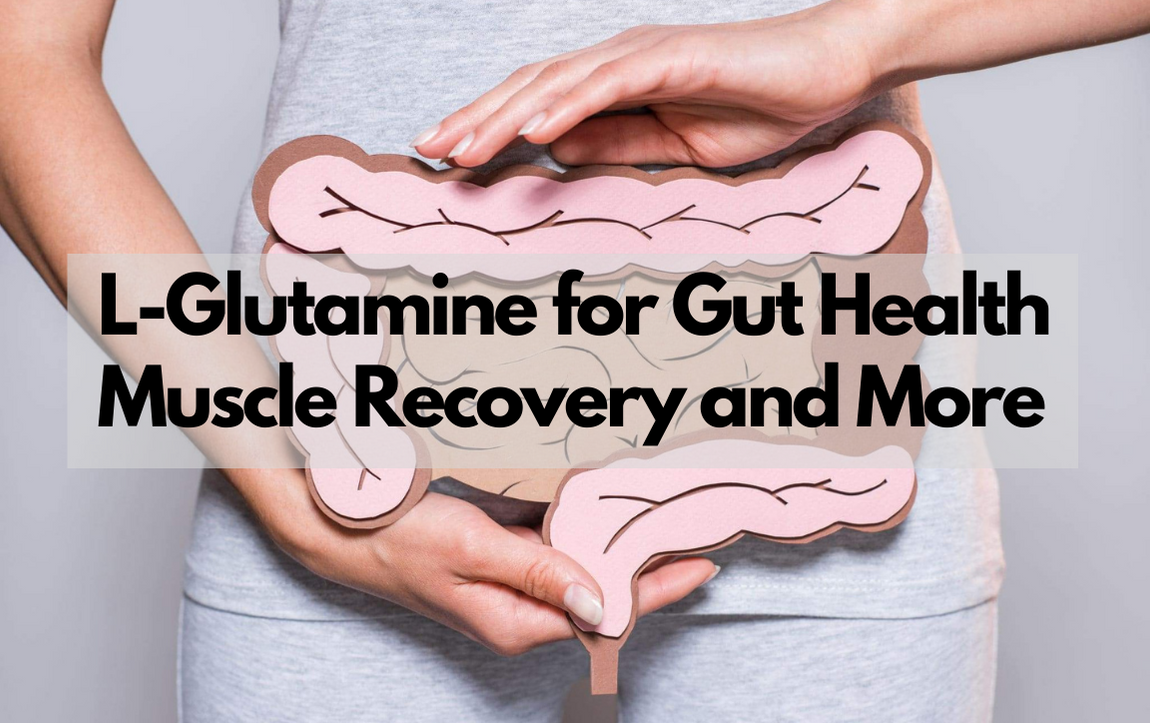Advertisement
Advertisement

Meta Description: Discover how glutamine can enhance your post-workout recovery, boost your immune system, and support overall health.
What is Glutamine
Glutamine is the most abundant amino acid in your body. It's considered "conditionally essential," meaning your body can usually produce enough of it under normal circumstances. However, during times of stress, such as intense exercise or illness, your body may require more glutamine than it can produce.This amino acid plays a vital role in many bodily functions, including:
- Muscle growth and repair: Glutamine is crucial for protein synthesis, the process of building and repairing muscle tissue.
- Immune function: It's a key fuel source for immune cells, helping your body fight off infections and diseases.
- Gut health: Glutamine helps maintain the integrity of your intestinal lining, which is important for nutrient absorption and overall digestive health.
How Glutamine Works for Recovery
When you engage in intense exercise, your glutamine levels can become depleted. This depletion can contribute to muscle soreness, fatigue, and impaired immune function. Supplementing with glutamine can help replenish these levels and support various aspects of recovery:- Reduces muscle soreness: Glutamine may help reduce muscle breakdown and inflammation, leading to less soreness after workouts.
- Improves muscle repair: By supporting protein synthesis, glutamine can help your muscles recover and rebuild faster.
- Boosts immune function: Intense exercise can temporarily suppress your immune system. Glutamine can help support your immune system and reduce your risk of getting sick after training.
- Enhances glycogen replenishment: Glutamine may help your body replenish glycogen stores, which are essential for energy production during exercise.
Benefits of Glutamine Supplementation
Beyond its role in exercise recovery, glutamine offers several other potential benefits:- Improved gut health: Glutamine supports the health of your gut lining, which can improve nutrient absorption and reduce inflammation.
- Enhanced immune function: Glutamine is crucial for the function of immune cells, making it beneficial for overall health and well-being.
- Wound healing: Glutamine plays a role in wound healing and tissue repair.
- Reduced stress: Some studies suggest glutamine may help reduce stress and anxiety.
Glutamine Dosage and Timing
The optimal dosage of glutamine for recovery is typically 5-10 grams per day. You can take it in divided doses throughout the day, with one dose ideally consumed after your workout.You can also take glutamine before bed to support muscle recovery and growth while you sleep.
Glutamine Foods and Supplements
While you can obtain glutamine from various foods, such as meat, poultry, fish, eggs, and dairy products, supplementation can be beneficial, especially for athletes and those with increased needs.Here are a few recommended glutamine supplements:
- Optimum Nutrition Glutamine Powder: This is a popular and affordable option that provides pure L-glutamine powder. It mixes easily with water or your favorite beverage.
- Typical Price: $20 - $30 for 100 servings
- Best for: Those looking for a basic, cost-effective glutamine supplement.
- Kaged Muscle Glutamine Powder: This supplement uses fermented L-glutamine, which is considered to be more readily absorbed by the body. It is also micronized for improved solubility.
- Typical Price: $30 - $40 for 60 servings
- Best for: Those who prioritize absorption and mixability.
- NOW Sports L-Glutamine Powder: This is a high-quality option that is free of common allergens and is suitable for vegetarians and vegans.
- Typical Price: $25 - $35 for 100 servings
- Best for: Those with dietary restrictions or who prefer a vegan-friendly option.
When to Consider Glutamine for Recovery
Glutamine supplementation can be particularly beneficial in the following situations:- Intense training: If you engage in regular intense exercise, your body's glutamine needs may be higher.
- Endurance athletes: Endurance activities can deplete glutamine stores, making supplementation helpful for recovery.
- Injury or illness: Glutamine can support recovery from injuries and illnesses.
- Compromised gut health: If you have digestive issues, glutamine can help improve gut health and nutrient absorption.
Potential Side Effects of Glutamine
Glutamine is generally safe for most people. However, some individuals may experience mild side effects, such as:- Gastrointestinal issues: Some people may experience stomach upset, nausea, or bloating.
- Allergic reactions: In rare cases, people may experience allergic reactions to glutamine supplements.
Glutamine and Other Supplements
Glutamine can be taken in combination with other supplements to further support recovery and performance. Some popular combinations include:- Glutamine and BCAAs: Branch-chain amino acids (BCAAs) are also essential for muscle growth and repair. Taking them together can enhance recovery and reduce muscle soreness.
- Glutamine and creatine: Creatine helps increase muscle mass and strength. Combining it with glutamine can further support muscle growth and recovery.
Important Considerations
- Individual needs vary: The optimal glutamine dosage and timing can vary depending on your individual needs and training intensity.
- Not a substitute for a healthy diet: Glutamine supplements should not be used as a substitute for a healthy diet and lifestyle.
- Consult your doctor: If you have any underlying health conditions or are taking any medications, talk to your doctor before taking glutamine supplements.
This information is intended for educational purposes only and does not constitute medical advice. Always consult with a qualified healthcare professional before starting any new supplement1 regimen.